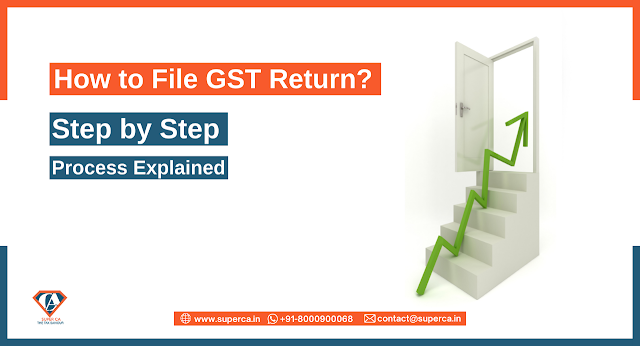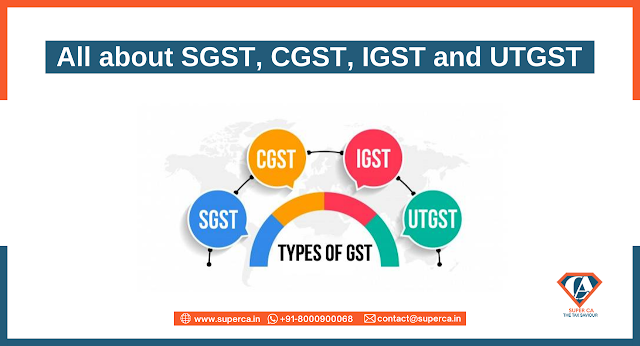List of Goods and Services Exemptions under GST Act
What is Exempt Supply
Exempt supply under GST means supplies that do not attract goods and service tax. In these supplies, no GST is charged. Input tax credit paid on these supplies will not be able for utilisation. These are the following three types of supply which are considered exempt supply:-
- supplies which are chargeable to nil rate tax.
- supplies which are partially and wholly exempt from the charge of GST by the notifications which amended section 11 of CGST and section 6 IGST.
- supplies which come under sec 2(78) of the Act. which covers the supplies which are not taxable under the Act like alcoholic liquor for human consumption.
Classification of Exemptions
Supplier may be exempt — Exemption to the person making supplies-i.e supplier, regardless of the nature of outward supply.
(Ex: Services by Securities and Exchange Board of India, Services by Charitable entities.
Certain Supplies may be exempt –Certain supplies due to their nature and type are exempted from GST. All supplies that are notified would be eligible for the exemption. Here, irrespective of who the supplier is, the exemption is allowed. not very much relevant.
(Ex: Services by way of sponsorship of sporting events, Services by way of public conveniences
Types of Exemptions
Absolute exemption: Exemption without any conditions.
Ex: Transmission or distribution of electricity by an electricity transmission or distribution utility, Services by Reserve Bank of India.
Conditional Exemption: Exemption subject to certain conditions.
Ex: Services by a hotel, inn, guest house, club or campsite, by whatever name called, for residential or lodging purposes, having declared tariff of a unit of accommodation less than ` 1000/- per day”.
Conditional or partial exemption
Eg- Intra-State supplies of goods and/or services received from an unregistered person by a registered person is exempted from payment of tax under reverse charge provided the aggregate value of such supplies received by a registered person from all or any of the suppliers does not exceed ` 5000/- in a day.
GST exemption from registration
➤ Agriculturists
➤ People who fall in the threshold exemption limit of turnover for the supply of goods INR 40 lakhs and for the supply of services INR 20 lakhs and for specified category INR 20 lakh and INR 10 lakh.
➤ People who are making NIL Rated and exempt supply of goods and services such as fresh milk, honey, cheese, agriculture services etc.
➤Person making activities that are not covered under the supply of goods and services such as funeral services, petroleum products etc.
➤ People making supplies that are covered under reverse charge such as tobacco leaves, cashew nuts(not shelled and peeled ) etc.
GST Exemption for Businesses
Small and medium scale businesses can enjoy GST exemptions if their aggregate turnover is up to a specified limit. When the GST Act was launched, this limit was INR 20 lakhs for individuals and businesses and INR 10 lakhs for hilly states and the North-eastern States of India. However, in the 32nd GST Council Meeting, which was held in January 2019, the limits have been changed. These limits are as follows –
➤ Businesses and individuals who are supplying goods can claim GST exemption if their aggregate turnover is less than INR 40 lakhs in a financial year.
➤ For the hilly and northeastern states of India, the limit has been revised to INR 20 lakhs.
➤ For businesses and individuals involved in the supply of services, the limit for claiming GST exemption is INR 20 lakhs
➤ In the case of hilly and northeastern States, if the aggregate turnover is up to INR 10 lakhs, businesses and individuals supplying services can claim GST exemptions.
Hilly and north-eastern States would include Arunachal Pradesh, Jammu and Kashmir, Himachal Pradesh, Uttarakhand, Tripura, Nagaland, Sikkim, Meghalaya, Mizoram, Assam and Manipur.
Aggregate turnover, as per the GST Act, would include the aggregate value of all types of taxable supplies, inter-state supplies, exempt supplies and the goods and services which have been exported. The following, would, however, be deducted from the value of aggregate turnover -
➤ CGST, SGST or IGST already paid by the investor
➤ Taxes that are payable on the basis of reverse charge mechanism
➤ Value of the inward supply of goods and services
➤ Value of non-taxable goods and services
GST Exemptions for Goods
There is a list of goods that do not attract GST as recommended by the GST Council. The reasons for granting an exemption on goods might include any of the following –
➤ In the interest of the public
➤ The exemption is as per the GST Council’s recommendation
➤ The exemption is granted by the Government through a special order
➤ The exemption is allowed on specific goods through an official notification
Moreover, there are two types of GST exemptions on goods. These are as follows –
Absolute exemption — Under this type of exemption, the supply of specific types of goods would be exempted from GST without considering the details of the supplier or receiver and whether the good is supplied within or outside the state.
Conditional exemption — Under this type of exemption, the supply of specific types of goods would be GST exempt subject to certain terms and conditions which have been specified under the GST Act or any amendment or notification.
Here is a list of some of the most common goods which are GST exempt –
GST Exemption on services
Just like specific goods, specific services are also GST exempt. There are three types of supply of services that would qualify for GST exemption. These include the following –
➤ Supplies that have a 0% tax rate
➤ Supplies that do not attract CGST or IGST due to the provisions stated in a notification which amends either Section 11 of CGST Act or Section 6 of IGST Act
➤ Supplies that are defined under Section 2(78) of the GST Act are not taxable.
Since these types of supplies are GST exempt, any Input Tax Credit which is applicable on these supplies would not be available to utilise or set off the GST liability.
Moreover, even undersupply of services, there can be two types of GST exemptions which are as follows –
➤ Absolute exemption wherein the service would be exempted from GST without any conditions
➤ Conditional exemption or partial exemption wherein exemption is granted based on a condition. This condition states that if the service is supplied intra-State or if the service is supplied by a registered person to an unregistered one, GST would be exempted if the total value of such supplies received by a registered person is not more than INR 5000/day.







Comments
Post a Comment